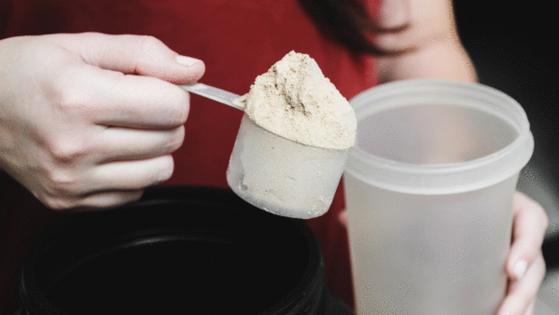On Nutrition: Bulking up caution
Published in Nutrition
A reader writes, “I have an 18-year-old grandson who started college this year and sustained a knee injury during football practice. He is recovering but my concern is that the team trainers have told him to 'bulk up' with supplemental pills and protein shakes from the health food store.
"He has 6 bottles of pills and most of the bottles state high in creatine in addition to high levels of other vitamins and ingredients. He has been taking these at least a couple of months and became very fatigued and not feeling well. He saw his MD and blood work was normal except for a low GFR (a test for kidney function). Can you please give us your input on the best plan to ‘bulk up’ for football?”
— Signed, JD
Glad to, although since I do not know your grandson’s particular medical history or the details of his supplement intake, I am only able to make general statements.
“Bulking up” refers to a process of consuming extra calories and exercising intensely in order to build muscle. Some experts say it can be perfectly safe if done right. Not everyone agrees.
Building body muscle involves eating extra carbohydrates (sugars and starches, which provide the primary fuel for working muscles) and protein (the building blocks of muscle tissue).
In addition to diet changes, an athlete must engage in strength training (such as lifting weights) in order to stimulate the growth of new muscle. However, since bulking involves the intake of additional calories, it can cause a gain of body fat as well as muscle mass.
To lose the fat, athletes may then resort to “cutting.” This involves continuing to exercise intensely while cutting back on calories in the hopes of losing fat while keeping the loss of muscle to a minimum.
The best plan for bulking up should come from a sports nutrition dietitian who can provide an athlete with evidence-based instruction on how to eat the correct balance of carbohydrates, protein and other nutrients to fuel their workouts and build muscle. These experts can also inform young athletes on what and when to eat that best matches their personal performance goals.
Supplement use, especially for adolescents, should be used with caution. Creatine supplements, for example, may help some athletes achieve muscle mass and strength. However, there is a gap in our knowledge about how safe or effective they are for adolescents, according to a 2023 review on this topic in the Journal of Orthopedics.
At 18, your grandson is still growing and developing. What he consumes—from food or supplements—will affect his future health either positively or negatively.
A 2021 article on this topic in Sports Medicine stresses that “those involved in managing youth athletes emphasize eating patterns that align with and support sound physical, physiological and psychosocial development and are consistent with proven principles of sport nutrition.” Your concerns are warranted.
©2024 MediaNews Group, Inc. Distributed by Tribune Content Agency, LLC.










Comments